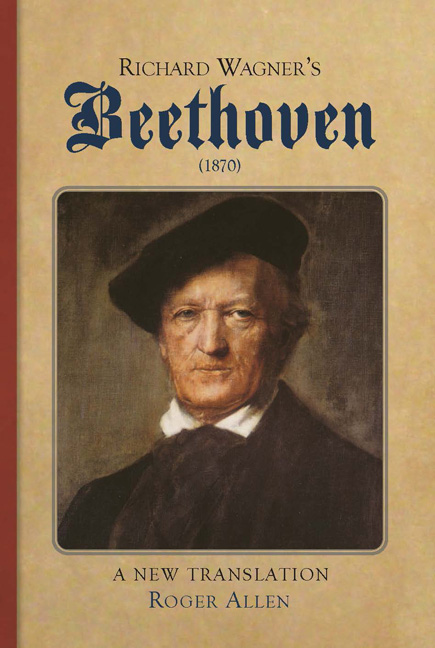Book contents
Preface and Acknowledgements
Published online by Cambridge University Press: 05 November 2014
Summary
It is a received commonplace that Wagner's prose works are difficult of access to the English reader. The entire corpus exists in translation only in the late Victorian version prepared by William Ashton Ellis. Although it is fashionable to denigrate Ellis for the prolixity of his rendering of Wagner's prose into English, it must be said in his defence that his often convoluted syntax and arcane vocabulary come close to replicating that of the original German. Whatever its faults may or may not be, Ashton Ellis's work represents a formidable achievement for which the English-speaking student of Wagner's ideas must remain ever grateful.
Beethoven (1870) has been better served for the English reader than most of Wagner's prose works: it also exists in an undated pre-Ellis translation by Wagner's advocate in England Eduard Dannreuther, and there is a substantial extract elegantly and imaginatively translated by Martin Cooper in 1988. This present version originated as a series of discrete excerpts prepared as supporting material for tutorial teaching at Oxford. There was no initial intention to translate the entire essay. The impulse to do so came from the late Brian Hitch, a retired diplomat with astonishing linguistic skills supported by a profound knowledge of music and boundless generosity with his time.
- Type
- Chapter
- Information
- Richard Wagner's Beethoven (1870)A New Translation, pp. ix - xiiPublisher: Boydell & BrewerPrint publication year: 2014



